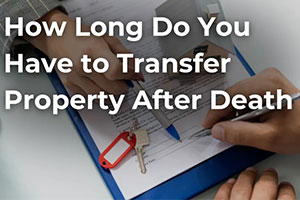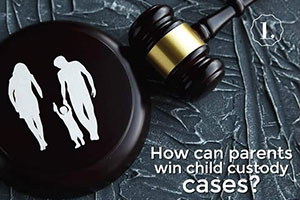Probate Court Explained: Managing Estates After Death
Family Law | by
Probate court is a specific kind of court that deals with the properties and debts of someone who has passed away.
The primary role of the probate court judge is to ensure that the deceased’s creditors are paid, and that any leftover assets are distributed to the rightful beneficiaries.
What is probate?
Probate is a legal process in which a court manages the distribution of a deceased person’s assets. Many states have a specialized probate court.
In some states, this court may be known by other names, like Surrogate’s Court, Orphan’s Court, or Chancery Court.
The court assigns someone to manage the deceased person’s assets, makes sure all debts are settled properly, and distributes the remaining property to the rightful heirs.
Probate without a will
When a person passes away without a will, their property is given to their next of kin, as defined by the state’s probate law. This is part of what is known as the law of intestate succession.
This law details the order in which the next of kin inherit. A surviving spouse usually receives a portion of the decedent’s assets. The law also specifies how grandchildren, siblings, parents, and aunts and uncles will inherit.
The specifics can vary from state to state. Essentially, the law of intestate succession acts as the “will” the state creates for you if you don’t make your own.
Probate with a will
When someone dies with a will, often called a last will and testament, their property is distributed according to the wishes expressed in the will.
To probate a will, the court must verify that the will is valid. If the will’s validity is challenged, the court will resolve the issue.
In all states, a surviving spouse may be entitled to a portion of the estate, known as the surviving spouse’s elective share, and this amount varies by state.
In community property states, without a separate agreement, half of the property acquired during the marriage belongs to the surviving spouse. The will dictates how the deceased’s share of the community property and their separate property are distributed.
The probate process
The probate process starts when someone files a probate petition with the court. This is usually done by a relative or a person designated in the will. If there’s a will, it must also be submitted to the court.
The court then issues an order appointing a representative for the estate. This person, often called a personal representative or executor (or administrator if there’s no will), is tasked with managing the estate’s administration. This includes:
- Opening an estate bank account
- Publishing legal notices in newspapers
- Verifying creditor claims and settling them, including funeral costs and final medical bills
- Notifying beneficiaries
- Selling assets if necessary
- Filing court documents
- Filing the final tax return for the deceased
- Transferring assets to the beneficiaries.
It’s common for the personal representative to hire a probate lawyer to help with these tasks.
The cost of probate
Probate costs include court filing fees, costs for publishing notices, and fees for attorneys and executors. If the estate is complex, accountant fees may also apply. Lawyer fees might be based on hourly rates, a percentage of the estate’s value, or a combination of both.
Probate can take anywhere from six months to two years for an average estate. The longer it takes, the more expensive it becomes. If heirs contest the will, the process can become even more prolonged and costly.
Probate makes the financial details of the deceased public, including assets, debts, and who will inherit what.
Simplified probate procedures
Many states offer simplified procedures for smaller estates, certain types of property, or if everything is left to a surviving spouse.
Probate and taxes
Some states impose taxes based on the estate’s value, known as estate or inheritance taxes. Some only tax estates above a certain value.
Estates exceeding a certain threshold may also be subject to federal Unified Gift and Estate Tax. The values triggering this tax change annually.
Probate and lawyers
For simple estates, it might be possible to go through probate without a lawyer. However, estates often are more complex than they appear. A probate attorney can expedite the process, handle complications, ensure taxes are properly managed, and reduce stress.
Avoiding probate
Given the complexities described above, many seek ways to avoid or minimize probate. This can be achieved by reorganizing how property is held or by placing assets in a living trust. Some probate-avoidance strategies might be considered gifts under federal tax laws.
A federal gift return might be required if more than $14,000 is given to anyone in a single year.
Understanding probate law is vital for any estate planning, as probate can seldom be completely avoided.
.jpg)




